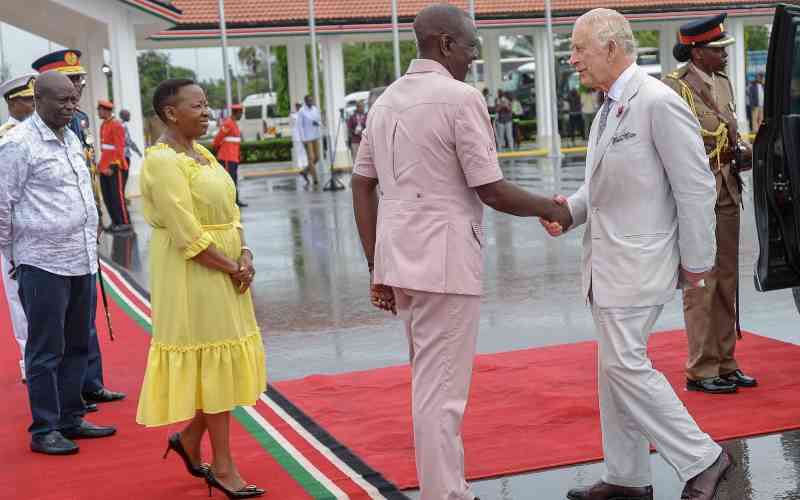×
The Standard e-Paper
Fearless, Trusted News

Heavy rains and flooding yesterday almost dampened King Charles III's and Queen Camilla's tour of the coast
The king came face to face with Mijikenda kaya elders when he held a meeting with members of the Coast Interfaith Council of Clerics (CICC) at the ACK Memorial Cathedral.